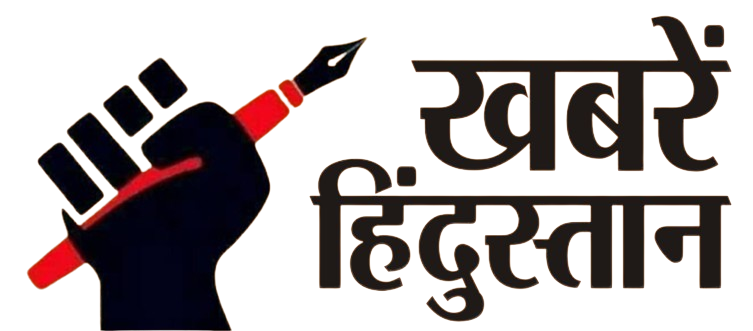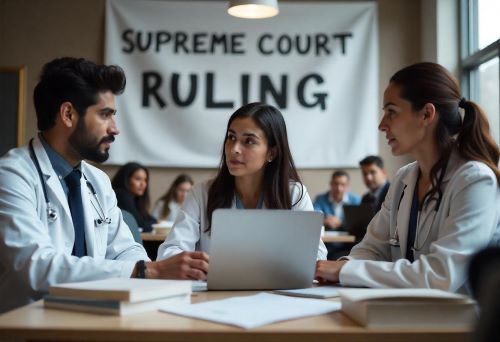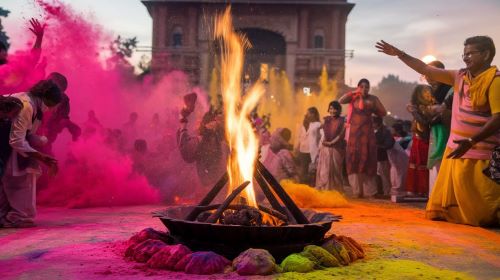Date: January 29, 2025
In a landmark decision, the Supreme Court of India has ruled that domicile-based reservations in postgraduate (PG) medical courses are unconstitutional.
The apex court stated that such reservations violate Article 14 of the Indian Constitution, which guarantees the right to equality.
This judgment mandates that admissions to PG medical programs under state quotas should be determined solely by merit, based on National Eligibility cum Entrance Test (NEET) scores.
Key Highlights of the Supreme Court’s Verdict
- Violation of Article 14:
- The Supreme Court emphasized that domicile-based reservations contradict the fundamental right to equality.
- The court ruled that restricting PG medical seats based on a candidate’s state of residence leads to discrimination against non-resident applicants.
- Merit-Based Admissions:
- The court ordered that NEET scores should be the sole criterion for admission to PG medical courses.
- The ruling aims to promote a fair and uniform selection process across India.
- Judgment Delivered by Three-Judge Bench:
- The verdict was given by a three-judge bench comprising Justice Hrishikesh Roy, Justice Sudhanshu Dhulia, and Justice SVN Bhatti.
Background of the Case
The ruling originated from a case filed in 2019 by petitioners Tanvi Behl and Shrey Goel, who challenged the domicile-based reservation policies implemented by certain states for PG medical admissions.
- The petitioners argued that these reservations were unfair and compromised merit-based admissions.
- They contended that non-resident candidates were being denied equal opportunities despite having high NEET scores.
- The Supreme Court, after hearing extensive arguments, ruled that such regional reservations are unconstitutional and must be abolished.
Implications of the Supreme Court’s Decision
This ruling will have a profound impact on India’s medical education system and admission process.
1. Uniform Admission Criteria Across India
- States must now follow a merit-based admission system, ensuring equal opportunities for all aspirants.
- The elimination of domicile-based reservations will lead to a transparent and standardized selection process.
2. Greater Opportunities for Merit-Based Candidates

- Students from all parts of India can now compete for PG medical seats without regional barriers.
- This ruling ensures that only the most qualified candidates gain admission, regardless of their state of residence.
3. Changes in State Admission Policies
- States that previously reserved PG medical seats for their residents must now amend their policies.
- They will need to align with the Supreme Court’s directive and implement a uniform merit-based framework.
Reactions from the Medical Community
The Supreme Court’s decision has evoked mixed reactions from the medical fraternity.
1. Support for Meritocracy
- Many medical professionals, students, and experts have welcomed the verdict, praising it as a move towards fairness and merit-based selection.
- According to Dr. Anil Mehta, a senior medical professor, “This judgment ensures that only the most deserving candidates get into PG medical programs, enhancing the overall quality of healthcare.”
2. Concerns Over Regional Representation
- Some stakeholders worry that the absence of domicile-based reservations may reduce representation from certain states.
- Dr. Shalini Kapoor, a senior medical consultant, expressed concern: “Some states invest in medical education but might not retain their students if they have to compete with candidates from across India.”
Historical Context of Reservation Policies in India
India’s reservation system has been an essential part of its affirmative action policies, ensuring representation for historically disadvantaged groups.
1. Categories of Reservation
- Scheduled Castes (SCs), Scheduled Tribes (STs), and Other Backward Classes (OBCs) have traditionally benefited from reservations to promote social equity.
- These reservations are based on historical and socio-economic disadvantages, unlike domicile-based reservations, which focus on regional preference.
2. Ongoing Debate: Merit vs. Regional Representation
- While affirmative action is crucial, the debate over merit vs. reservation continues.
- The Supreme Court’s latest ruling further fuels discussions on how reservations should be implemented without compromising meritocracy.
Future Outlook: What Lies Ahead?
Following this historic ruling, several developments are expected in the coming months.
1. Overhaul of State Policies
- States will need to restructure their admission policies to comply with the Supreme Court’s directive.
- A shift towards a 100% merit-based system will be required.
2. Legal Precedent for Other Professional Courses
- This judgment may set a precedent for similar cases in other fields such as engineering, law, and management.
- Future challenges to domicile-based reservations in other professional courses may arise.
3. Potential Resistance and Legal Challenges
- Some states may challenge the ruling or seek clarifications.
- The issue could lead to political debates over reservation policies.
Conclusion: A Step Towards Fairness and Equality
The Supreme Court’s verdict marks a significant step toward ensuring equal opportunities for all medical aspirants in India. By abolishing domicile-based reservations, the ruling upholds the principles of meritocracy and fairness in PG medical admissions.
While the decision has divided opinions, it paves the way for a uniform, transparent, and just admission system that prioritizes merit over regional preference.
Moving forward, India’s medical education system must adapt to these changes and ensure that talented students receive the opportunities they deserve, irrespective of their state of residence.
Stay tuned to khabrainhindustan.com for more updates on education, government policies, and legal developments in India.





